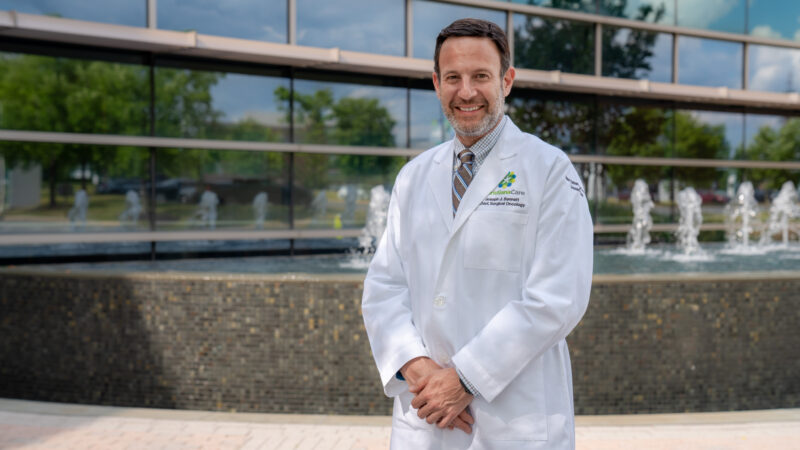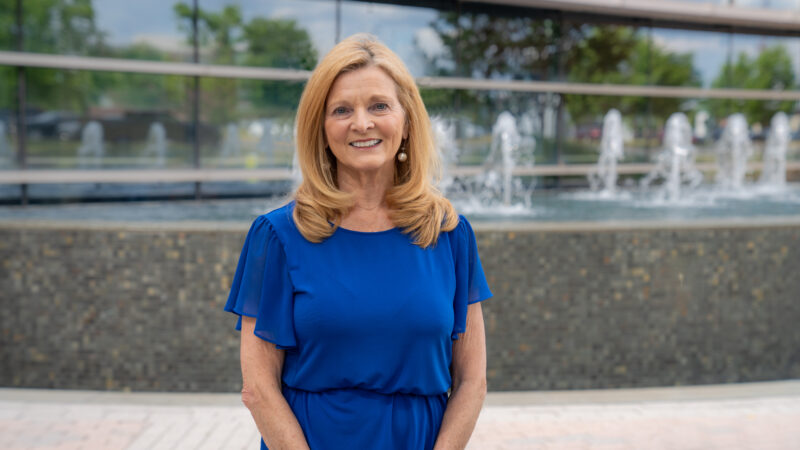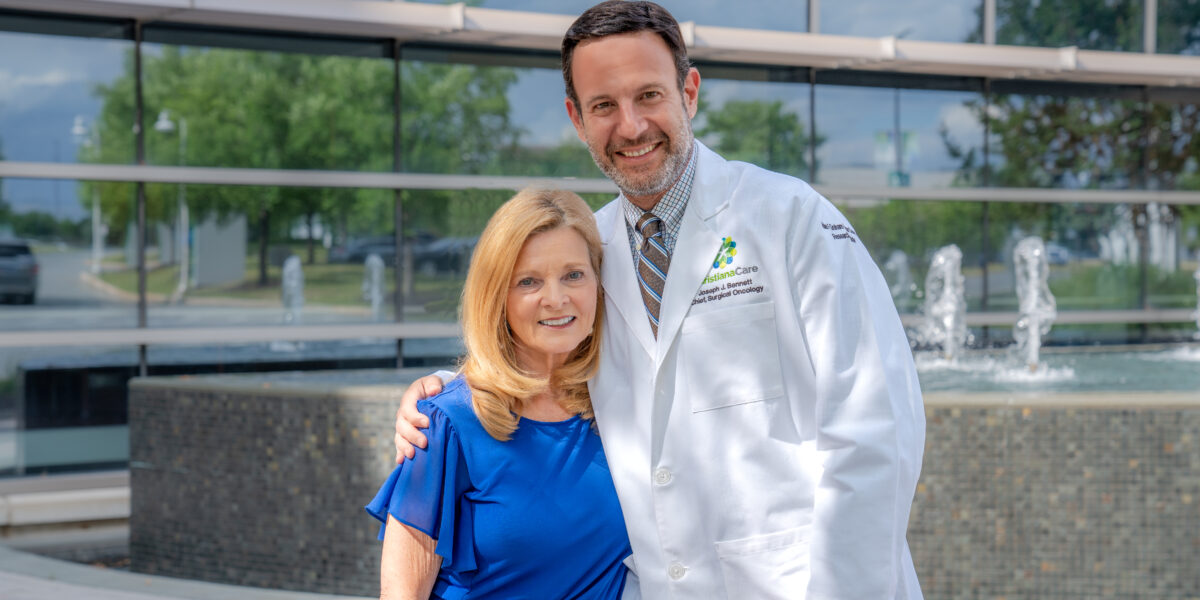It was Christmastime 2020 when Cheryl Martin began to notice that she wasn’t feeling well.
“My clothes seemed looser and I my skin felt itchy all over,” she said.
Being a retired nurse, Martin suspected an allergy and headed to the pharmacy for over-the-counter relief.
“I’ve been active and healthy all my life, sailing, skiing and hiking, I couldn’t imagine anything was really wrong with me,” she said.
“It wasn’t until my sister paid a visit and told me I looked terrible that I realized I should see a doctor.”
After a series of allergy tests and other examinations, a CT scan confirmed a much more serious condition. A tumor was growing in the head of Martin’s pancreas on the right side. A subsequent biopsy confirmed it was cancer.
That was when Martin met ChristianaCare’s Chief of Surgical Oncology, Joseph Bennett, M.D., who is co-director of the Hepatobiliary and Pancreas Multidisciplinary Clinic at the Helen F. Graham Cancer Center & Research Institute.

Because Martin’s tumor was largely confined to her pancreas and she was otherwise in good health, Bennett determined she would be a good candidate for a type of surgery called the Whipple procedure.
Only about 20% of patients are potential candidates for Whipple surgery. It is one of the most complex operations a patient can have.
“For pancreatic cancer like Cheryl’s, the Whipple procedure is the only option for a cure,” Bennett said.
Leading edge treatment close to home
To reach the tumor, the surgeon removes the head and sometimes more of the pancreas along with the tumor and all the nearby lymph nodes. A portion of the stomach, small intestine, gallbladder and part of the bile duct also come out. Once the tumor is removed, the surgeon has to make new connections to reconstruct the digestive tract.
Successful Whipple surgery doesn’t happen just anywhere — but it does happen at the Graham Cancer Center with a team of experts.

Bennett and his team have performed hundreds of Whipple surgeries, not only for patients with pancreatic cancer, but also for those with benign pancreatic tumors or cysts, as well as cancers in the bile duct, small intestine and other parts of the digestive system.
This level of experience has helped improve quality of life and extend survival rates for patients with pancreatic cancer for months to even years. Currently, about 18% of patients who have the procedure remain cancer free at five years.
Successful Whipple surgery doesn’t happen just anywhere — the experts are ChristianaCare.
A highly experienced operating room team and post-surgical care support are essential to success. At the Graham Cancer Center, an entire team of multidisciplinary specialists manages care for patients with pancreatic cancer.
The Hepatobiliary and Pancreatic Cancer team includes medical oncologists, surgeons and interventional radiologists who are joined when appropriate by radiation oncologists, gastroenterologists and other specialists.
These doctors are backed by a long list of resources and support services that include surgical critical care, care coordination by certified oncology nurses, pain management, psychology, pastoral care, genetic counseling, nutrition and social services.
During her nursing career, Martin had cared for patients who had Whipple surgery for pancreatic cancer.
Where you go for treatment matters
“I knew the odds for complete recovery, and I knew I needed a team that was going to help me beat them,” she said. “I chose the right team for the best outcome at the Graham Cancer Center.”
Because pathology testing found one positive lymph node after her surgery, Martin followed up with six months of chemotherapy to control any further cancer spread.
Cheryl Martin is back to doing what she loves with the people she loves most.
Two years later, with no evidence of cancer, Martin is back to doing what she loves with the people she loves most.
“I went skiing with my daughter for the first time last winter,” she said. “With tears in my eyes, I told her I never thought I would do this again.”
“When you have pancreatic cancer like mine, it matters where you go for treatment.” Martin agrees that patients with access to the best medical resources and best support systems have the best outcomes.
“I give credit to my doctors, nurses and support staff at ChristianaCare and the Graham Cancer Center,” she said. “Without their expertise and advanced level of care, my outcome might have looked very different.”
Click here to make an appointment at the Helen F. Graham Cancer Center & Research Institute.



